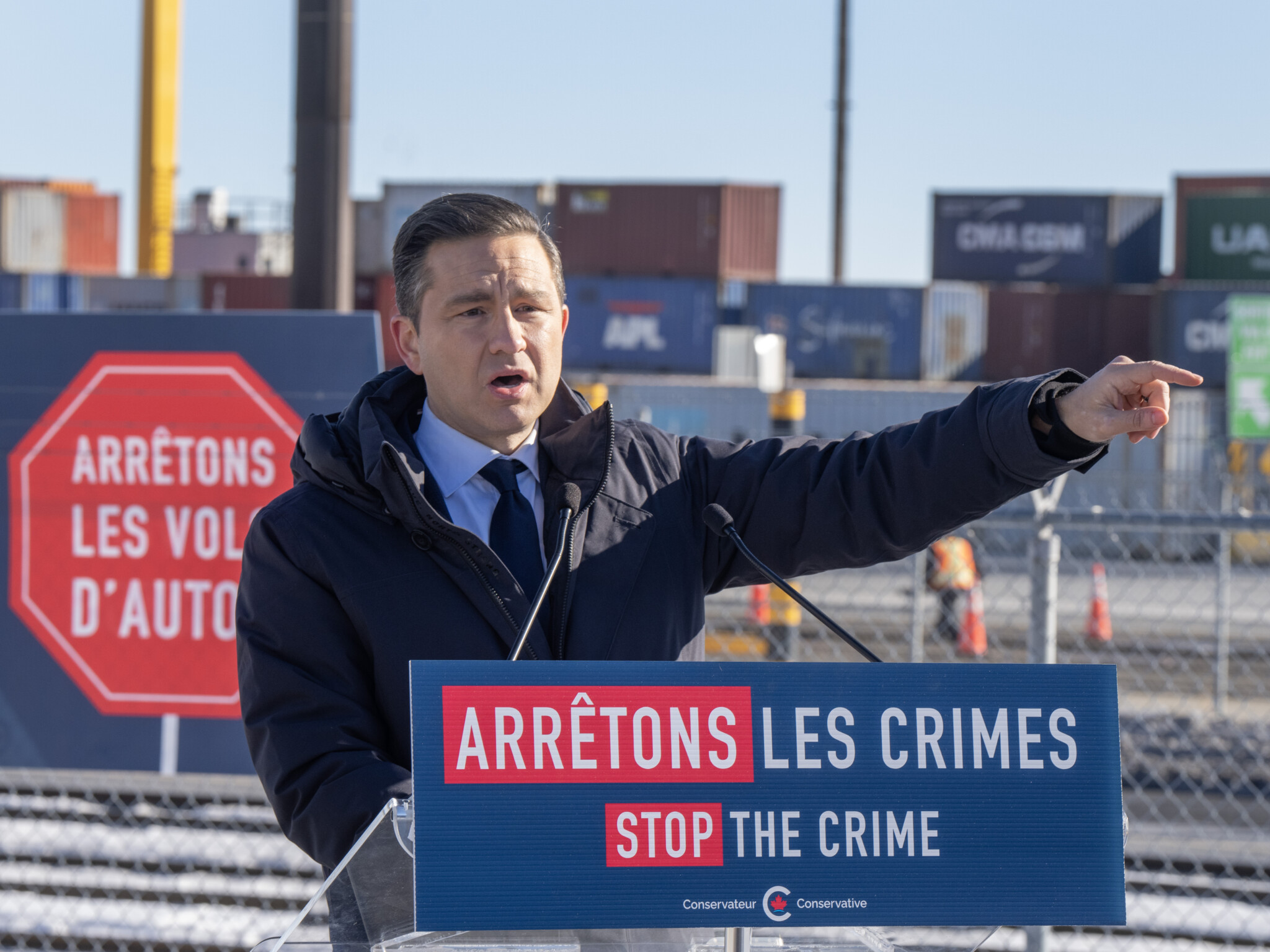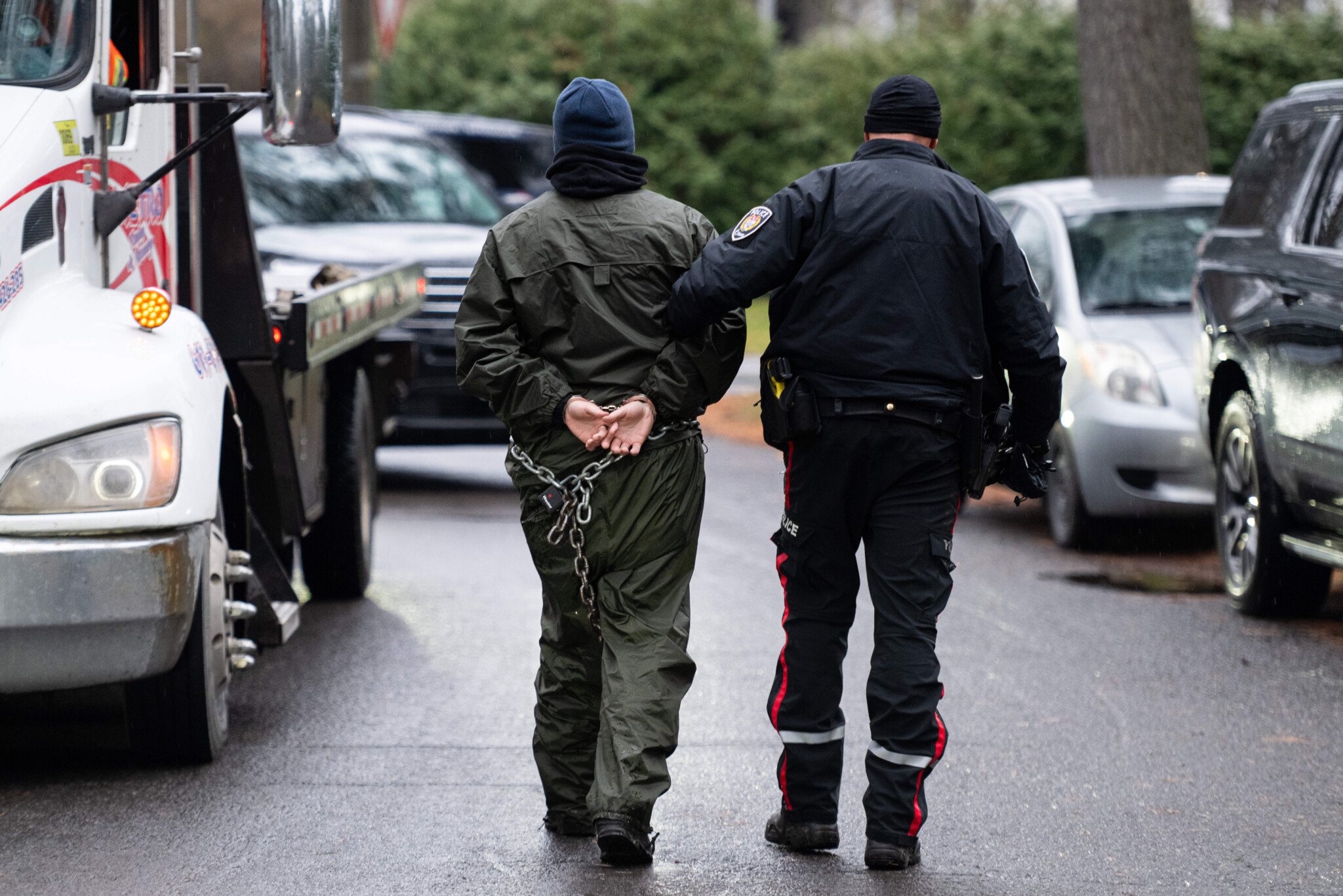Although the political landscape has been upended by Trump’s provocations, crime, and disorder remain salient issues in Canada. The Conservative Party’s “stop the crime” message nicely captures Canadians’ growing frustration with the heightened criminality and social disorder coinciding with the Trudeau government’s tenure.
Influenced as they’ve been by progressive ideology, the Liberals’ approach has clearly fallen short. Violent crime remains stubbornly high; experiments in decriminalizing hard drug consumption have backfired; and cities remain plagued by encampments, open drug use, and mental illness-related stranger attacks. And despite the modern Left’s fixation on “decolonization” and “racial justice,” the costs of these failed policies have been borne disproportionately by law-abiding members of the same non-white, low-income, and recent immigrant communities that progressives claim to care about most.
But how exactly can the Conservatives make real and lasting improvements to the criminal justice system? “Tough on crime” rhetoric may be popular, but we ultimately need measures that will improve the daily lives of ordinary people.There are many promising proposals, including those suggested in this 2024 report by Troy Ridell and Dennis Baker.
Here are four initiatives that would reduce crime, without being thwarted by Liberal-appointed senators, bureaucrats, and judges hostile to conservative initiatives.
1. Fund the police
While the “defund” movement from the George Floyd protests never gained as much purchase here as south of the border, some Canadian agencies did experience budget cuts. Deploying more, better-trained, and better-supported police is the surest route to safer and more livable communities.
“Fund the police” isn’t just a conservative mantra. The evidence shows that putting more police on the streets is more effective than harsher sentences or any other policy tool in deterring crime and fostering public safety.
Provincial governments and municipalities are primarily responsible for funding local police. A Poilievre government could enhance police capacity by increasing support for the RCMP; coordinating best practices, technological development, and information sharing; and using the federal spending power to sponsor initiatives falling within provincial jurisdiction.
2. Set clear rules
Poilievre must set clear rules for the police to protect us while respecting civil liberties. Police work is currently governed by a Byzantine mix of rules, including many vague principles created by judges rather than Parliament. Police can’t catch criminals unless they know what they can do, what they can’t do, and what they are required to do.
This legal uncertainty doesn’t just impede daily police work. It causes wasteful litigation and, too frequently, the exclusion of reliable evidence. Parliament should accordingly codify and clarify the rules dictating when suspects are “detained” and thus entitled to Charter protection; how long police can hold detainees before arresting or releasing them; and how long police can interrogate people after arrest, to name just a few of the more pressing reforms.

Pierre Poilievre speaks at the Port of Montreal on Tuesday, February 6, 2024. Ryan Remiorz/The Canadian Press.
Parliament could also give police greater powers to obtain critical information for combatting internet-based crimes, such as sharing child pornography. The Supreme Court’s expansive interpretation of the Charter right to be free from “unreasonable search or seizure” has forced police to use onerous judicial warrant procedures just to obtain basic data, such as suspects’ names and IP addresses. Parliament could solve this problem by allowing police to get this information by formal request, subject to accountability measures to prevent systematic and intrusive data collection. Given the centrality of this data to child exploitation investigations, the courts would be reluctant to overturn such legislation under the Charter.
3. Reform pretrial detention
Canadians are rightly concerned about a catch-and-release bail system. But pretrial imprisonment is costly, has limited benefits to public safety, and is at odds with the presumption of innocence. A Conservative government could resolve this tension by keeping dangerous repeat offenders behind bars until trial while using less expensive and intrusive measures for petty criminals.
This could be accomplished with two reforms. First, Parliament could enact additional “reverse onuses,” which require accused persons to justify their release (rather than putting this burden on the Crown where it normally lies) in circumstances posing a substantial risk to public safety. After concerted lobbying by provincial premiers, the Liberal government took tentative steps in this direction. But the Conservatives could do more by requiring people with prior records for serious violent and firearms-related offences to convince the court to release them.
Relatedly, they should repeal the Trudeau government’s mandate requiring bail judges to “give particular attention to the circumstances” of Indigenous accused and members of other “vulnerable” and “disadvantaged” populations. The premature release of dangerous people is more likely to hurt marginalized populations than help them.
Ottawa could also expressly authorize and provide funding for more robust bail supervision programs, including electronic monitoring. Many provinces, for example, have instituted intensive GPS tracking of high-risk accused. While research on the efficacy of such programs is limited, there is evidence that they can reduce rates of both re-arrest and failure to attend court.
4. Reform sentencing
While conservatives rightly stress the importance of retributive punishment in denouncing criminality and expressing solidarity with victims, the research shows that prolonged incarceration imposes a hefty burden on taxpayers yet achieves only negligible returns to crime control. In most circumstances, increasing sentences does little to deter others. And while imprisoned criminals can’t commit crimes against the public, this benefit is largely attenuated by the tendency of incarceration to increase recidivism.
But while mass incarceration is not the answer to Canada’s crime problem, conservatives are justifiably concerned that judges’ vast sentencing discretion too often results in excessively lenient punishments. One response would be to replicate the Harper government’s use of mandatory minimum sentences for the most concerning crimes.
The problem with this strategy, however, is that the courts struck down most of these provisions as violating the Charter’s guarantee against “cruel and unusual” punishment. While the notwithstanding clause could overcome this impediment, invoking it could induce a confrontation with a hostile Senate, lapse under the clause’s sunset provision, and set a precedent for overriding rights cherished by conservatives, such as freedom of expression.
A better solution is to require judges to order the statutory minimum unless doing so would produce a “grossly disproportionate” sentence. Used in many other jurisdictions, this “safety valve” should eliminate the risk of unconstitutionality and compel courts to impose the minimum in all but rare cases.
It may also reduce prosecutors’ incentive to circumvent the minimum by charging the accused with lesser offences. While some judges might be tempted to invoke the exception too readily, this risk could be mitigated by requiring them to justify their decision with detailed reasons and granting the Crown an automatic right to appeal. The fact that progressive scholars find this proposal too punitive is a strong point in its favour.
Predicting the efficacy of criminal justice reforms is difficult, but the proposals outlined above should help to substantially reduce crime and keep Canadians safe. They would also enjoy broad popular support and be palatable to both “law and order” and “civil liberties” oriented conservatives.
The criminal justice system is too complex to be guided by any one political philosophy. But it is well past time for a conservative corrective to the Trudeau Liberals’ criminal justice failures.









